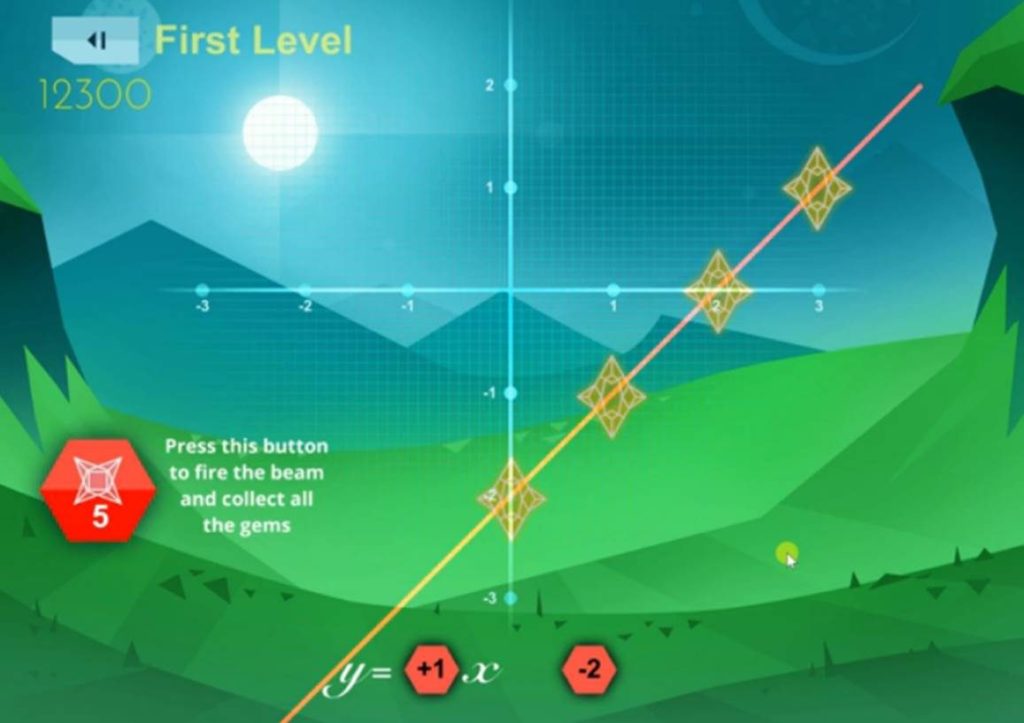
A screenshot of the game xPonum that was used in the New York test.
Players of the video game xPonum have a clear mission: set the trajectory of the laser to hit the row of gems. Collect the gems to clear levels and earn badges—and learn some algebra and trigonometry along the way.
This summer, nine students at the Borough of Manhattan Community College (BMCC) in New York City took part in a pilot program to develop a game-based remedial math curriculum. The course is designed to build algebra skills for science, technology, engineering and math majors, and to prepare students to take a pre-calculus course in the fall.
One of three games developed for this course, xPonum focuses on algebra and trigonometry. The other two—Project Sampson, which combines mapping and geography skills with math content, and Algebots, which turns algebra into a puzzle game—were also played by students throughout the summer course.
“It’s not being made to replace the teacher, it’s not being made to replace instruction,” said Geoffrey Suthers, a game designer who was part of the team that developed Project Sampson, which combines math concepts with real-world problem solving as players work to manage the impact of a natural disaster. “It’s a way to have further exposure, and also to give you an idea of how these math concepts are applied.”
Game designers like Suthers worked with students and faculty at BMCC throughout the design process, visiting classrooms and gathering feedback from students. Suthers said that having students and teachers involved in the process helped him understand how to adjust the game to create a better learning experience. The partnership was crucial: while teachers were the experts in content, the game designers brought a broad knowledge of different types of gaming experiences to the table. Together, they were able to produce games that provided meaningful learning.
“Math is much more creative than a set of procedures,” said Kathleen Offenholley, a math professor at BMCC who was involved in developing the curriculum. “And one of the things that games do is that they bring out that creativity.”
According to Offenholley, a good math game for students at any grade level does more than teach content. xPonum, for example, encourages students to experiment with graphing equations by giving them multiple chances to get the right answer. As they play the game and confront similar scenarios, the students get a chance to practice problem-solving and pattern-recognition skills.
Another benefit of game-based learning is that it forces students out of a “procedural mindset,” Offenholley said. In her experience, students like having a set of procedures: memorize the content, pass the test, finish the course. But she thinks more students would be successful in math class—and maybe even enjoy it more—if they not only memorized what to do to solve an equation, but also understood why those steps worked. Games motivate students to dig deeper into the content and to experiment with a subject like math, which can be very dry, in a fun, playful way.
“There’s this false dichotomy between fun and work,” she said. “Actually, when you play games, you work hard. Because you’re having fun, you’re willing to do more work. And that’s the point.”
This story was produced by The Hechinger Report, a nonprofit, independent news organization focused on inequality and innovation in education. Read more about Blended Learning.
